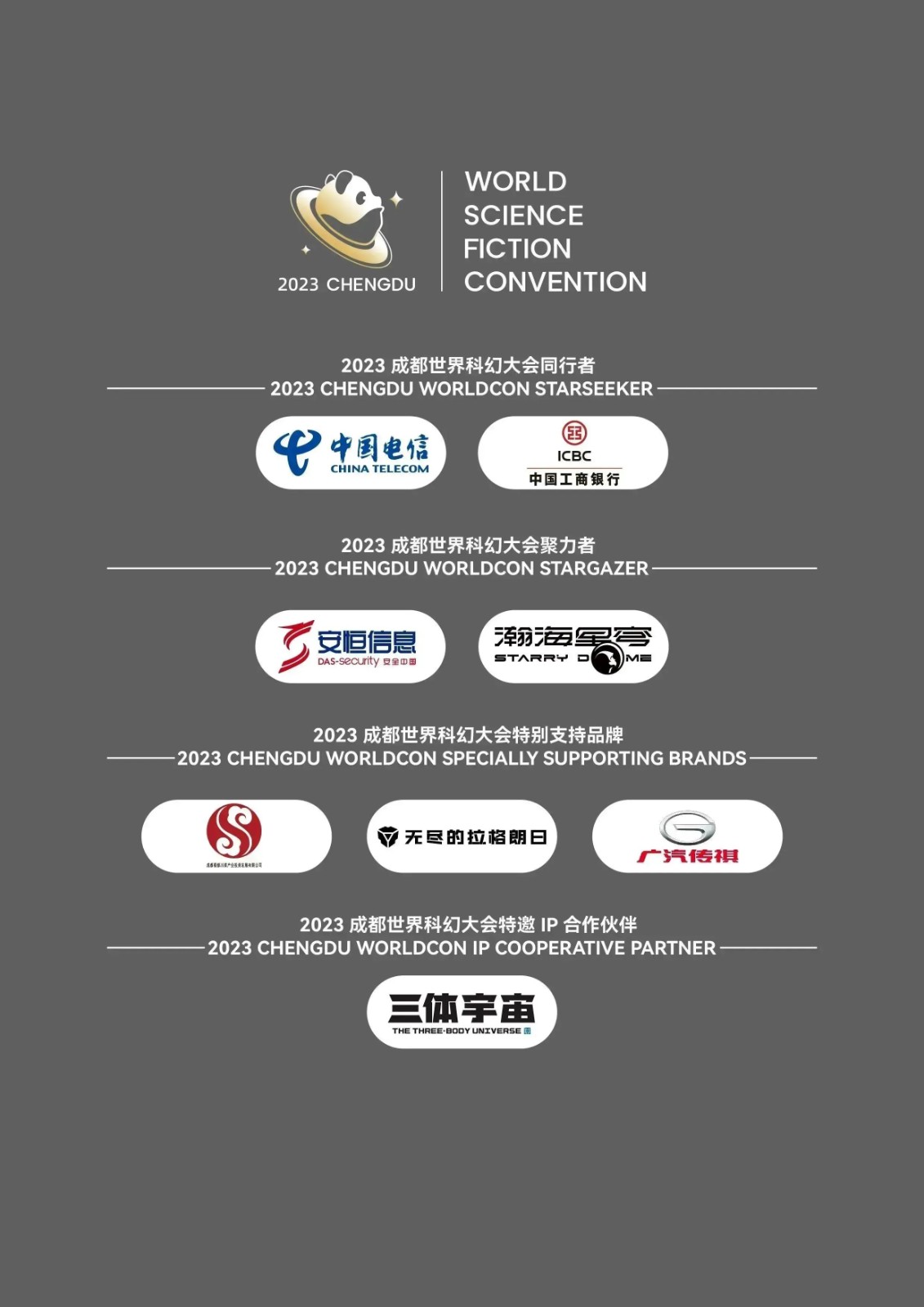As the main event of the 81st World Science Fiction Convention (Worldcon), the high-profile 2023 Hugo Awards ceremony was held in the Hugo Hall of the Chengdu Science Fiction Museum on October 21 night. The 17 Hugo Awards, the Astounding Award for Best New Writer and the Lodestar Award for Best Young Adult Book were also announced. Liu Cixin, Robert Sawyer, and other guests witnessed the birth of the “new Nobel Prize winners in science fiction literature” with sci-fi fans around the world.
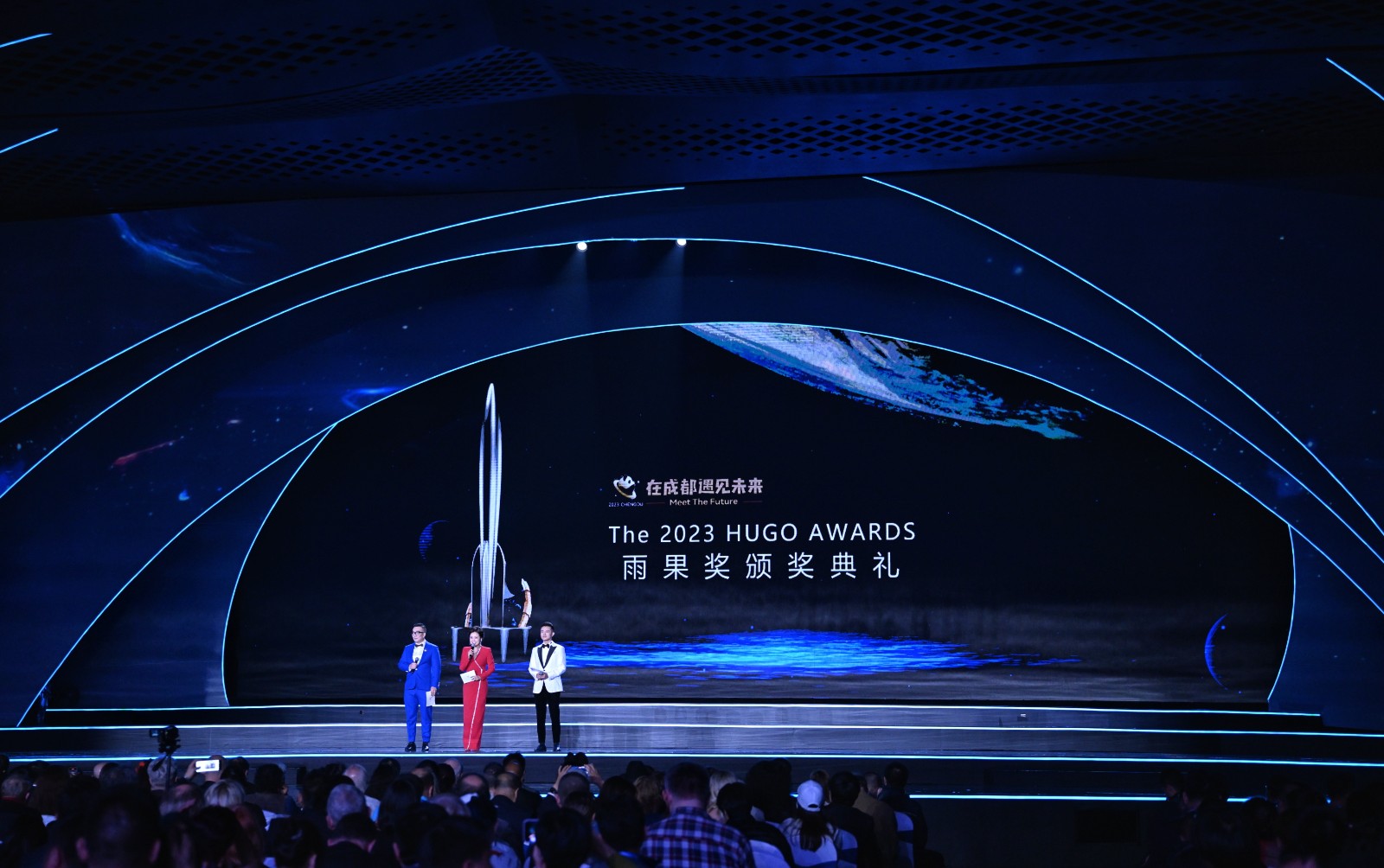
It is reported that the 2023 Hugo Awards nominations and finalists are voted by the members of the Worldcon, and the Hugo Awards jury is responsible for collecting nominations, tallying votes, and conducting eligibility checks. This year marks the first time that the Hugo Awards have been held in China, and it has garnered extensive participation from sci-fi fans from all over the world, including the largest number of non-English speaking members in its history.
As an important region of traditional sci-fi, works (personnel) from Europe and the United States still performed well on the list of the winners. The most anticipated Best Novel is awarded to American sci-fi writer T. Kingfisher's Nettle & Bone.
Chinese science fiction, which has developed rapidly in recent years, made a strong showing at this year's Hugo Awards. Sci-fi writer Hai Ya is granted the Best Novelette for his “The Space-Time Painter”; sci-fi artist Zhao Enzhe receives the Best Professional Artist award; and Zero Gravity Newspaper wins the Best Fanzine award. In addition, the list of winners also includes Nigerian and Polish writers, which fully reflects the authority and global nature of the 2023 Hugo Awards. It shows the communication and collision of thoughts and imagination of authors from different countries and different cultural backgrounds. And this, in essence, embodies the theme of the 2023 Chengdu Worldcon, “The Symbiosis Era”.
01
T. Kingfisher’s work wins
the Best Novel
On October 21 night, the fantastic designs on the passage leading to the Hugo Hall presented hi-tech-ish and futuristic vibes with the lighting, making people feel like being in the vast universe. Guests and sci-fi fans from across the world entered the Hugo Hall through the passage and waited for the exciting moment.
At 7:00 PM, accompanied by the drumbeat, the audience stood up in the rhythm according to the number 1 or 0 on their seat cards. Using a computer language composed of 0s and 1s, they “shouted” the slogan of the convention, “Meet the Future”, expressing their anticipation for the Hugo Awards in the most sci-fi way.

With the dance titled “I Love Science Fiction” by a group of little sci-fi fans wearing space suits from Chengdu, the 2023 Hugo Awards ceremony officially kicked off.
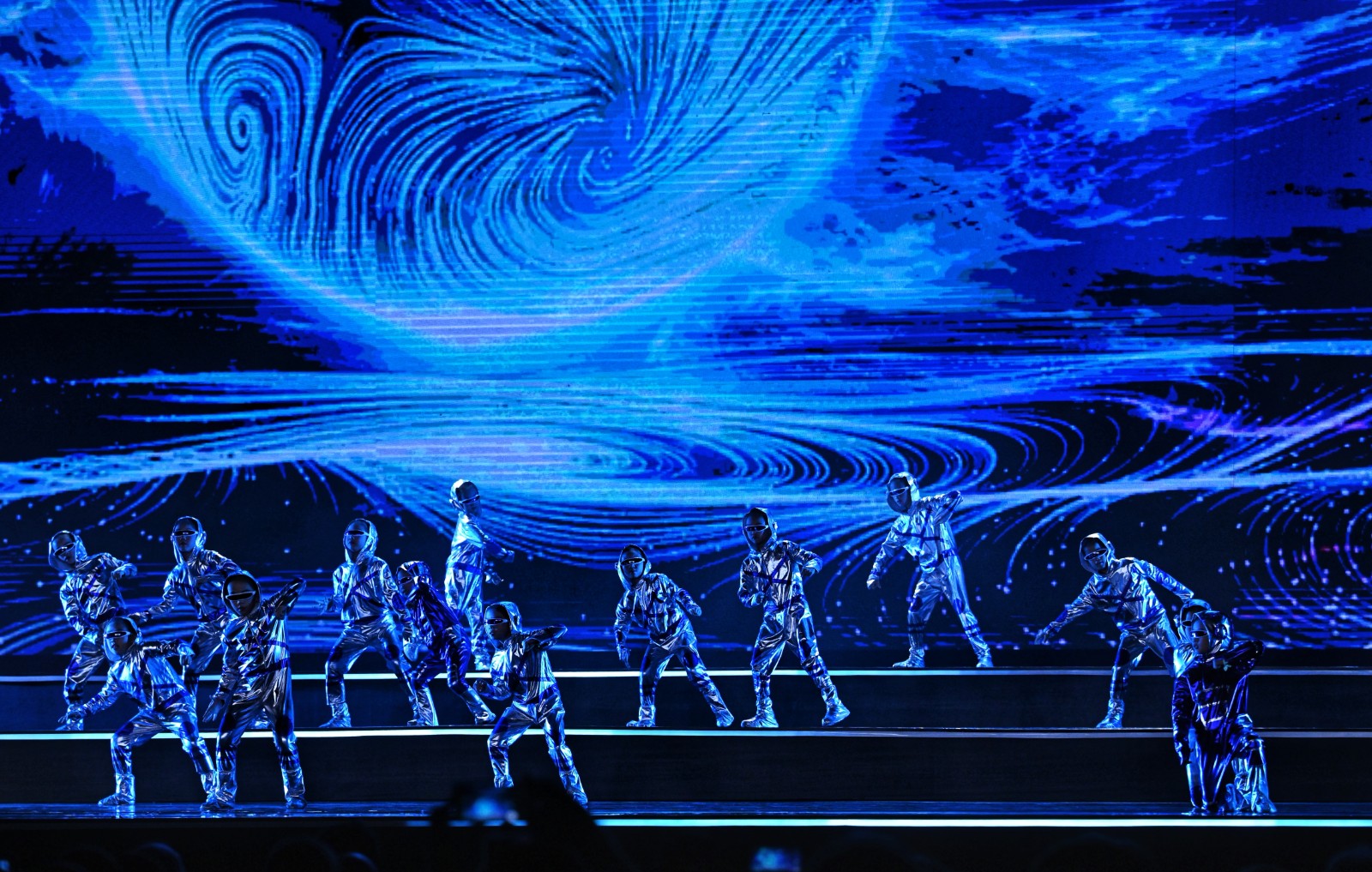
Dave McCarty, the vice chairman of the 2023 Chengdu Worldcon and leader of the Hugo Awards jury, explained the selection of the Hugo Awards and thanked all the sci-fi fans around the world for their caring for the Hugo Awards. Dave said that the caring and support has allowed the Hugo Awards to flourish and help everyone work together to complete this year's selection.
The Best Novel award has always been the focus of the Hugo Awards. This year, the big prize goes to Nettle & Bone by American sci-fi writer T. Kingfisher. The novel treats familiar fairytales like a buffet, creating a very cozy but still perilous D&D adventure.
The Best Novella and the Best Short Story go to Seanan McGuire’s Where the Drowned Girls Go and Samantha Mills’s “Rabbit Test”, respectively. Rob Wilkins’s Terry Pratchett: A Life With Footnotes garners the Best Related Work award.
When the winners took to the stage, they were joined by a little sci-fi fan. The holding of the big hands and small hands embodies the meaning carried by science fiction: the connection between hope and the future.
02
Liu Cixin awarded the Best Novelette to Hai Ya
It is worth noting that on this list of Hugo Awards winners, Chinese works and individuals won awards in different categories, setting a record for the number of awards in the history of the Hugo Awards. This fully reflects the significant growth of Chinese science fiction in recent years.
Chinese sci-fi writer Hai Ya received the Best Novelette for his work “The Space-Time Painter”. Hai Ya becomes the third Chinese sci-fi writer to win a Hugo Award following Liu Cixin and Hao Jingfang. At the ceremony, the honor was presented to Hai Ya by Liu Cixin, the first Chinese winner of Best Novel for his The Three-Body Problem in 2015. Enthusiastic applause broke out when the trophy was handed over from Liu Cixin, born in the 1960s, to Hai Ya, a post-90s. Chinese science fiction, in the handover between the two generations, goes towards a better tomorrow.
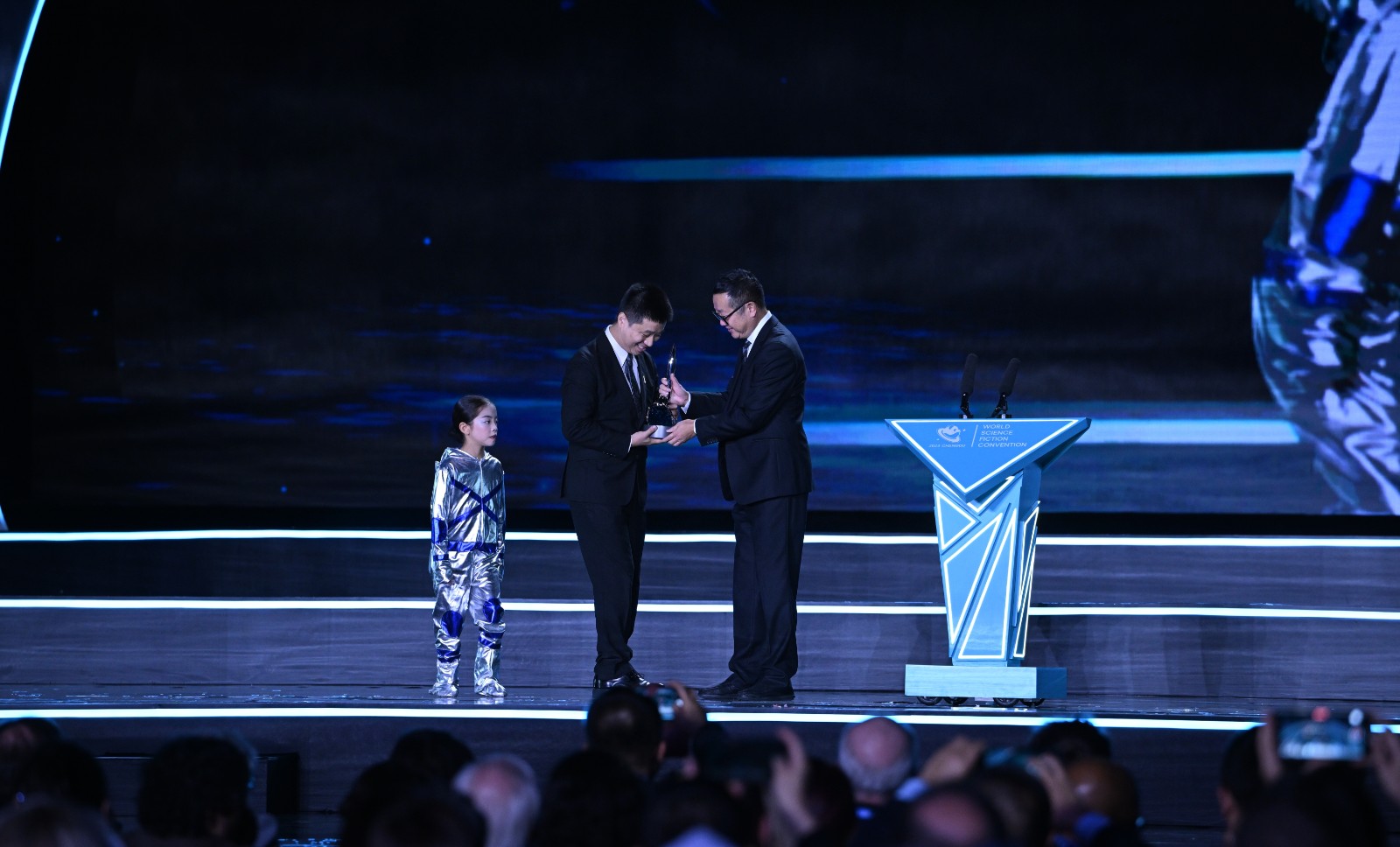
The reporter has learned that born in 1990, Hai Ya published “The Space-Time Painter” in 2022. The novel was inspired by the life of Wang Ximeng, the talented painter of A Thousand Li of Rivers and Mountains. The novel traces the creation of a famous fictional Chinese painting and the story of the fight for power among the rulers and the opposition. The novel combines the “restoration of cultural relics in the Forbidden City”, a hot topic in recent years, with traditional Chinese culture, history, reasoning, and science fiction. Hai Ya regards the novel as a periodic summary of his sci-fi writing. "In this novel, I tried my best to balance the relationship between story, characters, and history, hoping to bring readers a mature book," he said.
Chinese sci-fi illustrator Zhao Enzhe garners the Best Professional Artist. He is hailed as “the Liu Cixin in the illustration community” and “the first painter of interstellar sci-fi in China”. Zhao Enzhe’s illustrations show his unique perspective and creativity on the sci-fi world, mostly depicting the landscapes of the future cities and huge starship with details created by CG art, which makes his works rich in story and full of hardcore sci-fi aesthetics. As a young illustrator from China, most of Zhao’s works are produced against the backgrounds of constantly exploring the frontier of sci-fi and the Oriental culture. In a previous interview, Zhao said that he hopes to promote the sci-fi art with Oriental philosophy to the world.
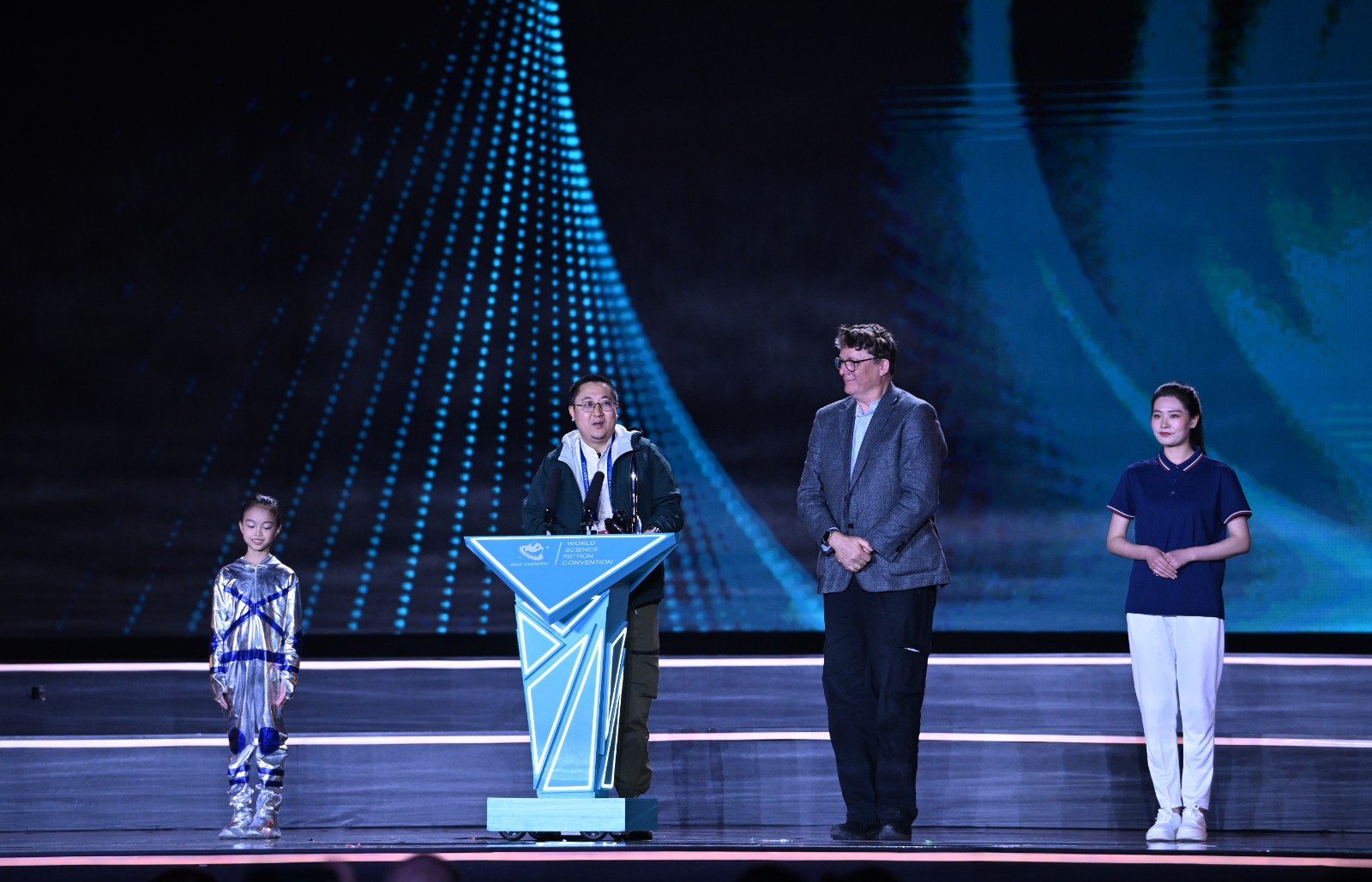
Zero Gravity Newspaper, a sci-fi fanzine co-founded by two Chinese sci-fi fans, RiverFlow and Ling Shizhen, is granted the Best Fanzine. The magazine aims at uniting the creative power of Chinese sci-fi fans, exploring and covering past sci-fi events, commenting on the hot topics as well as offering coverage on science fiction news, history, and trends around the world.
03
Authority and diversity combined
More than 25,000 sci-fi works and individuals were nominated for this year's Hugo Awards, and a total of 114 entries in the 19 categories were qualified for the finalists. Sci-fi fans around the world not only anticipates the results, but also deeply engaged in the process. Thanks to the open and inclusive selection mechanism of the Hugo Awards, with the joint efforts of the Chinese and foreign organizers, non-English works have attracted the attention of sci-fi fans around the world for the first time, further promoting the diversification of the world sci-fi literature. This also marks the largest participation of non-English-speaking members in the history of Hugo Award selections.
From the list of winners, we can also observe the authority and global reach of the 2023 Hugo Awards. Among the winners, many come from traditional science fiction places such as Europe and the United States. Simultaneously, there are also works (and individuals) from non-English-speaking countries like South Korea, Nigeria, and Vietnam have made it to the nominations. This reflects the authority and global influence of this year’s Hugo Awards.
The Best Editor (Short Form) is awarded to Neil Clarke, the founder and editor-in-chief of the world-renowned sci-fi and fantasy magazine Clarkesworld. As the editor-in-chief, Neil Clarke is dedicated to discovering new writers and promoting the diversification of sci-fi writing to bring readers fresh sci-fi and fantasy works.
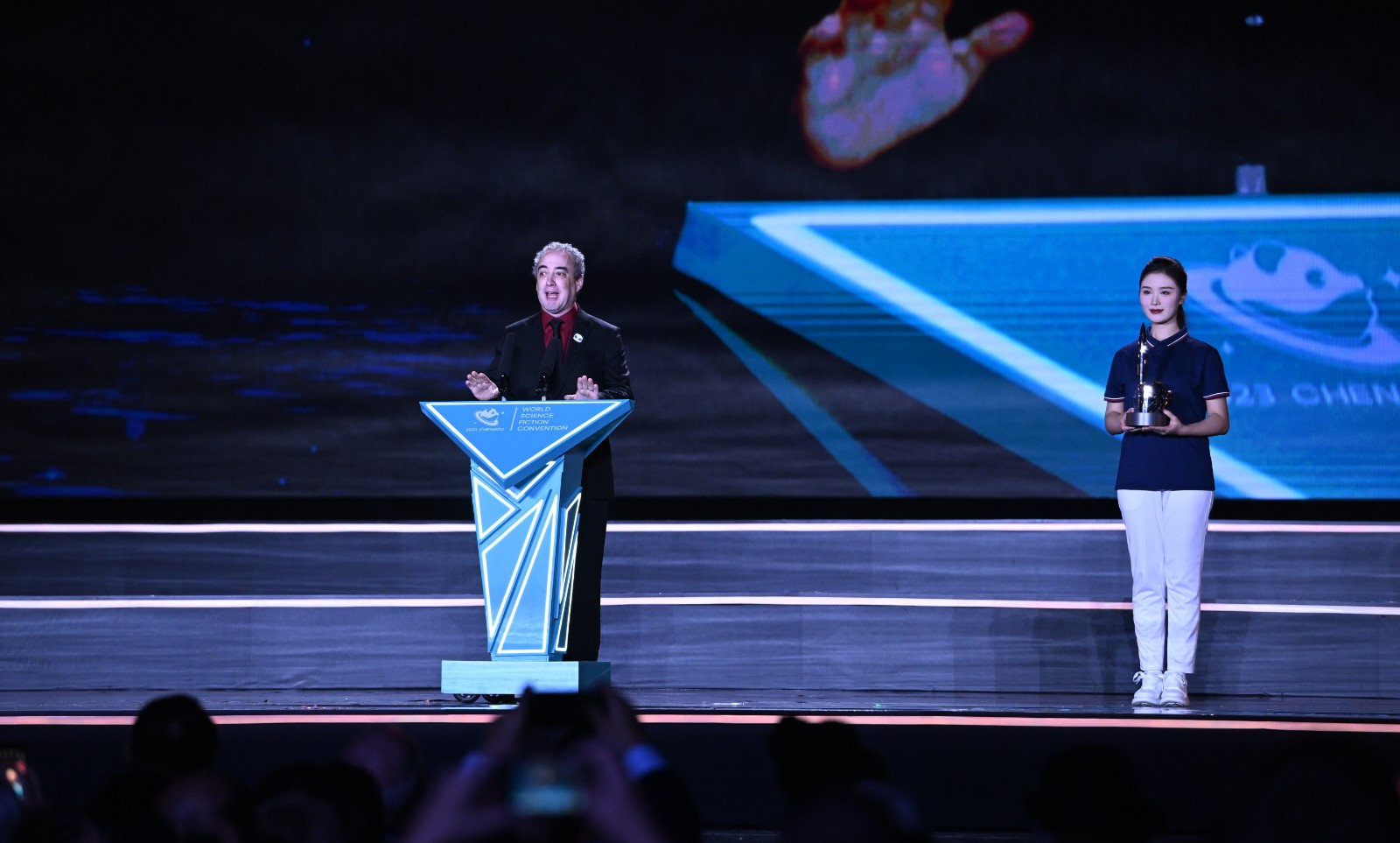
The winner for the Best Series is the Children of Time Series by Polish-British author Adrian Tchaikovsky. The series is widely admired for its complex world-building, in-depth characterization, and exploration of scientific concepts.
The comics, dramas, and film and TV products derived from sci-fi are also well represented in this year's Hugo Awards. For example, The Expanse: “Babylon's Ashes”, the winner of Best Dramatic Presentation (Short Form) is the final episode of the final season of the sci-fi TV series based on the bestselling book of the same title. The Best Dramatic Presentation (Long Form) goes to Everything Everywhere All at Once, Oscar's best picture of this year. The comic book Cyberpunk 2077: Big City Dreams garners the Best Graphic Story or Comic.
Travis Baldree won the Astounding Award for Best New Writer for his novel Legends & Lattes. Akata Woman (The Nsibidi Scripts), a novel by Nigerian-American author Nnedi Okorafor received the Lodestar Award for Best Young Adult Book.
Ben Yalow, a member of the Mark Protection Committee (MPC) of the World Science Fiction Society (WSFS) and co-chairman of the 2023 Chengdu Worldcon, presented the Big Heart to Bobbi Armbruster for his outstanding contribution to the building of the science fiction community.
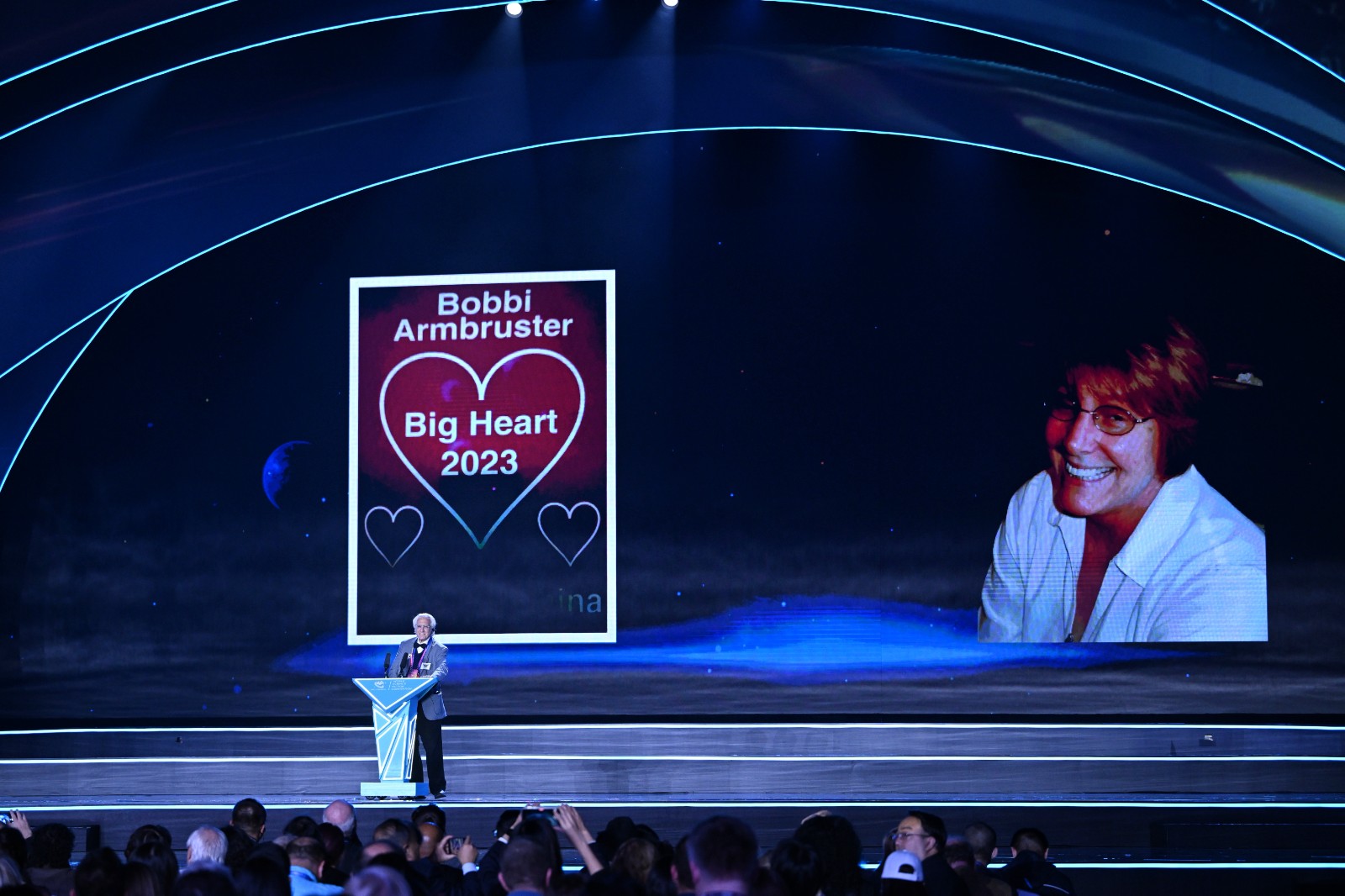
As a traditional part of the Hugo Awards ceremony, sci-fi fans in attendance also cherished the memories of sci-fi fans who passed away in the past year. One by one, on the large screen, names drifted away into the distance of the galaxy, turning into points of light and becoming verses in the celestial poem.
As one of the world’s highest sci-fi awards, the Hugo Awards is known as “the Nobel Prize in sci-fi literature”. It is presented by the World Science Fiction Association in memory of Hugo Gernsback, founder of Amazing Stories, the first magazine exclusively for science fiction. Since 1953, the awards have been presented annually at the World Science Fiction Convention.
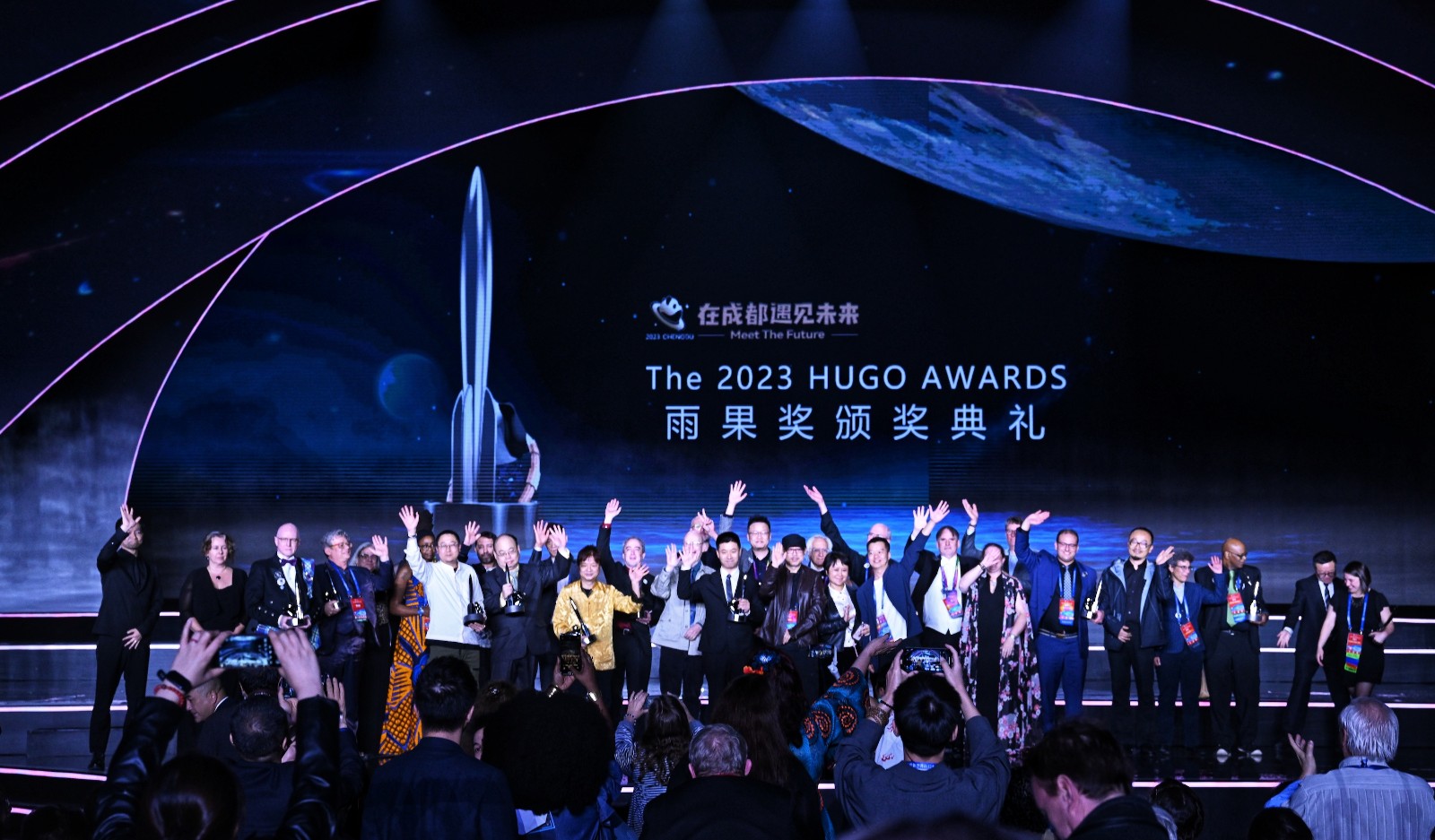
●
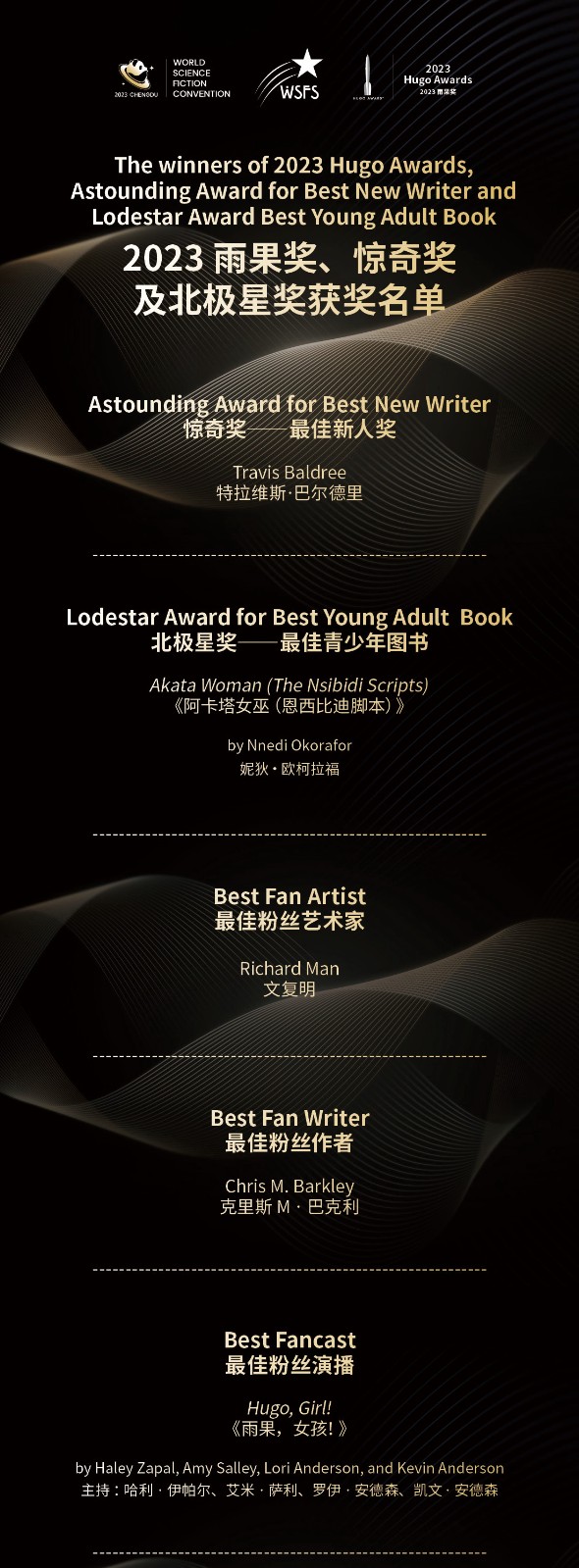
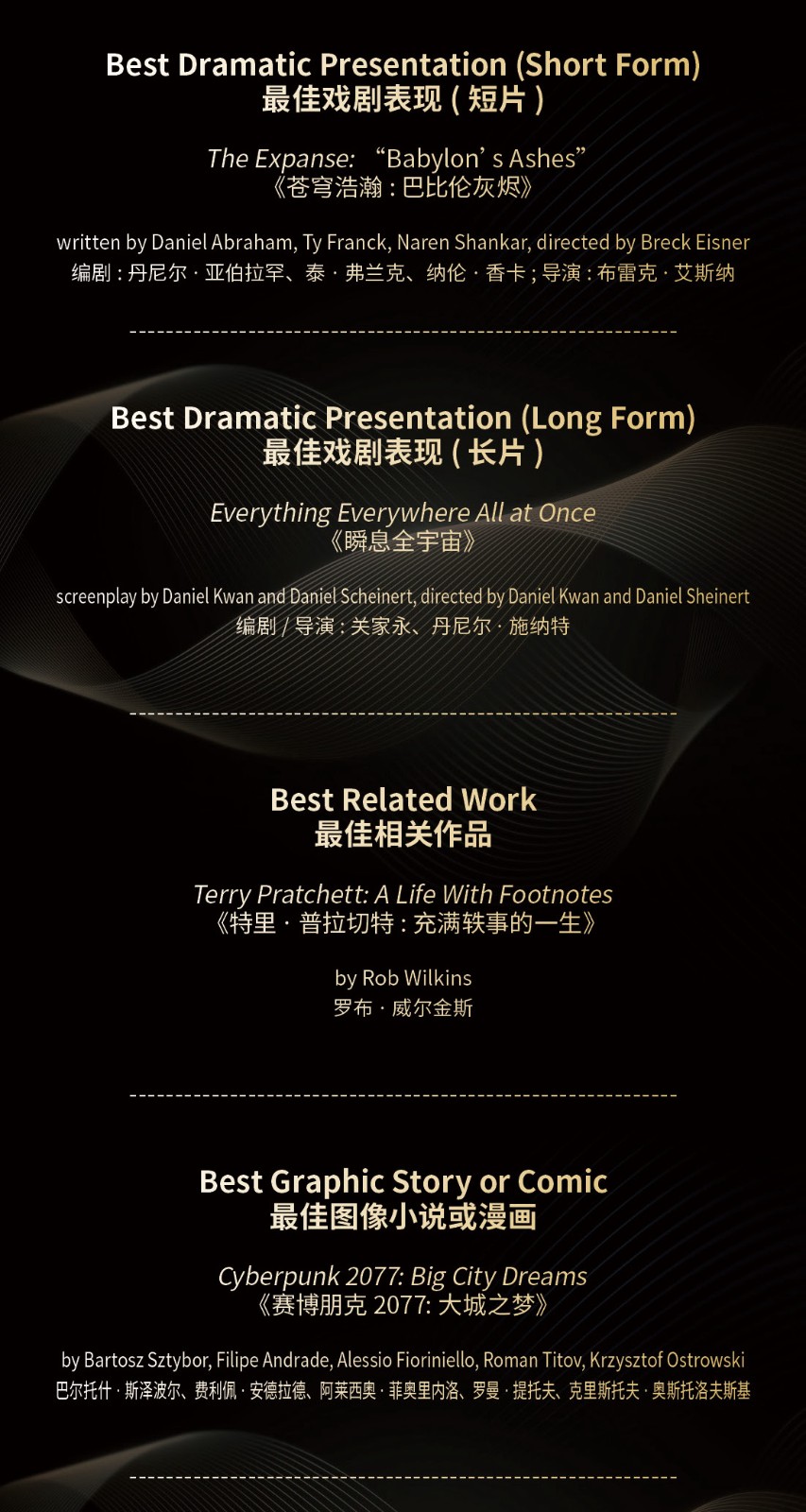
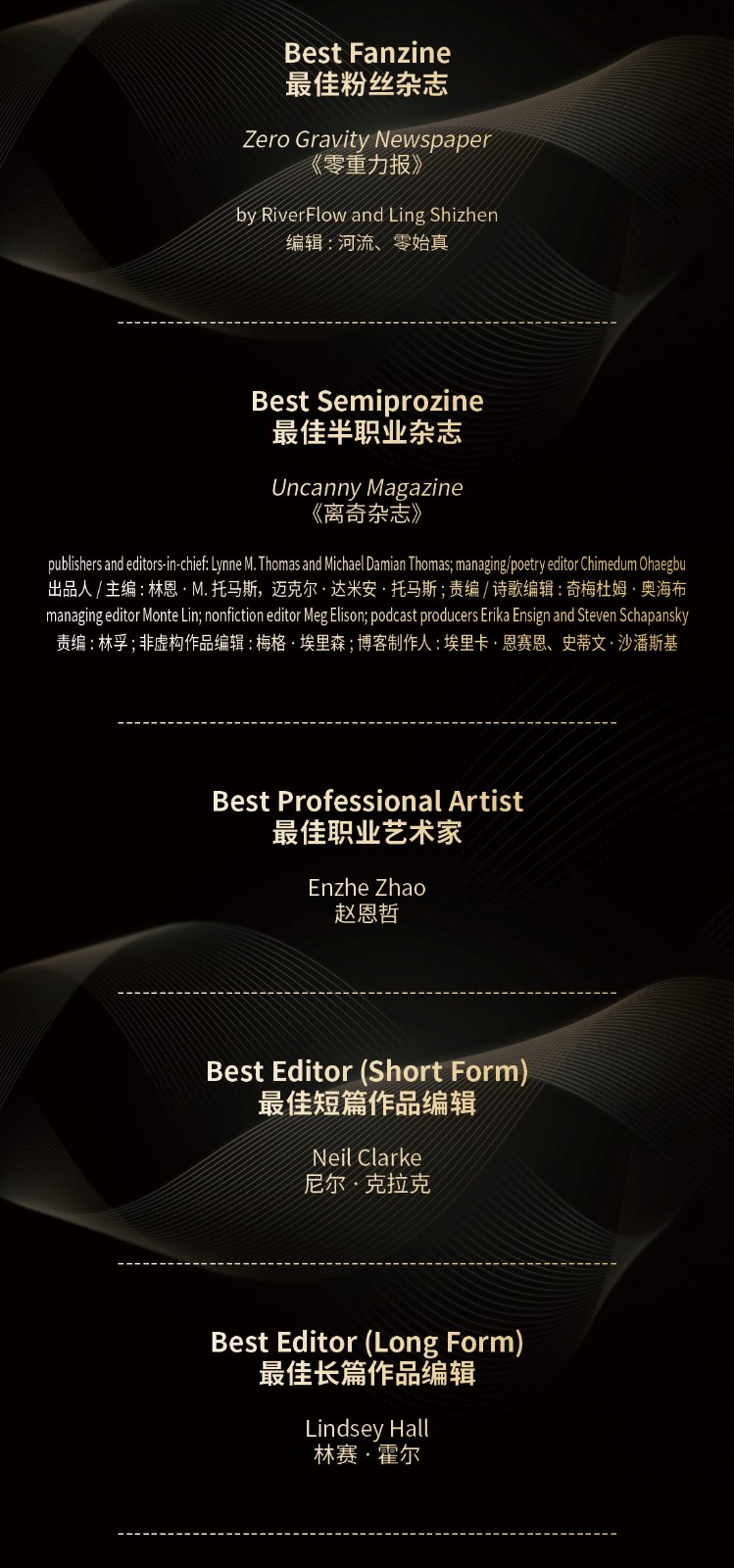
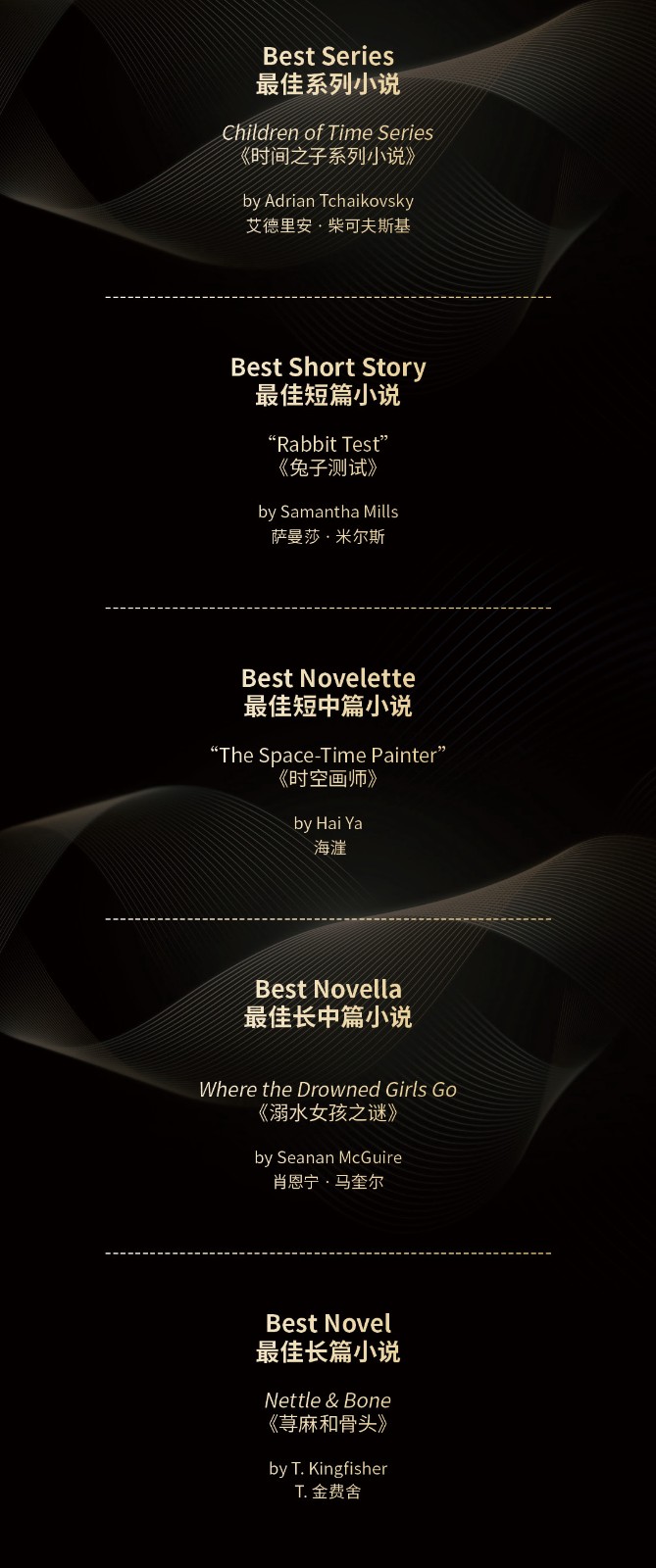
●
